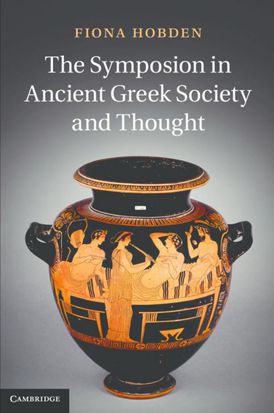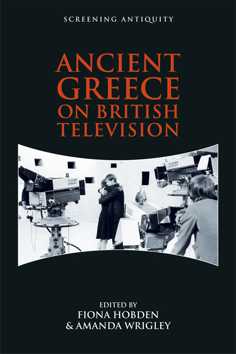
Dr Fiona Hobden MLitt PhD (St And)
Honorary Research Fellow Archaeology, Classics and Egyptology
- Work email F.Hobden@liverpool.ac.uk
- About
- Research
- Publications
- Teaching
- Professional Activities
Research
Ancient Greek Culture & Society: From Drinking to Old Age

Fiona Hobden's research into the culture and society of ancient Greece has focused particularly on the symposion, or drinking party. Investigations address the social and religious aspects of the event, alongside it discursive role in the ancient Greek imagination (or thought world). Drawing upon a broad range of written and visual material from the Archaic to Imperial periods, she demonstrates how representations of drinking together - at the symposion, on the comic stage, in the lawcourts, and in historical and philosophical writing (for example) - contributed to contemporary conversations about politics, morality and identity, as well as understanding of the event itself. These ideas are developed most fully in her monograph, 'The Symposion in Ancient Greek Society and Thought' (Cambridge, 2013). Fiona is currently developing a new project on old age, which aims to illuminate the place of the elderly within ancient Greek society by examining their representation in relation to the city, the family, and social networks across a broad array of literature and art. A chapter prepared for 'The Cultural History of Ageing in Antiquity, c.800 BCE to 500 CE' (edited by Tim Parkin) addresses first-person experiences of ageing, drawing upon theories from Cultural Gerontology.
Classical Reception Studies: Antiquity on Television

Fiona's research in the field of Classical Reception Studies focuses primarily on the ancient world on television, and especially in documentaries. Where earlier research examined the persuasive effects of archaeology as space, artefact and practice, recent investigations have focused on how, why and to what effect documentaries construct antiquity as 'self' and 'other' (in relation to ancient Greece), shape biographical lives for Great Men from ancient history (the Roman emperor Augustus), present versions of the past that sit between other media and genres (for Pompeii) and modernize ancient epic (specifically the 'Odyssey'). However, her interests in television were initially sparked by an episode about Pompeii in the popular BBC science-fiction drama 'Doctor Who' (season 4, 2008), and she has recently written (with Amanda Potter) about the historical action series 'Spartacus: Blood and Sand' (STARZ, 2010) and the competitive reality show 'Bromans' (Electric Ray, 2017). Themes include the interaction betwen fact and fiction within genre contexts, television drama as a source of emotional and historical knowledge (or a 'practical past'), and the gender politics encapsulated by the female gaze. Together with Amanda Wrigley, Fiona is co-editor of Ancient Greece on British Television (Edinburgh, 2018).
History & Philosophy: Xenophon the Athenian
.jpg)
Fiona's interest in Xenophon dates back to her doctoral thesis, where she examined sympotic representation and philosophical strategies in the 'Symposium', a Socratic dialogue set at a drinking party: a theme she developed and expanded upon in subsequent publications, including her symposion monograph. Since co-editing 'Xenophon: Ethical Principles and Historical Enquiry' (Brill, 2012) with Christopher Tuplin, she has written on 'Oeconomicus' for Michael Flower's Cambridge Companion to Xenophon and authored an introduction to the author's texts and themes for Bloomsbury's 'Ancients in Action' series: ‘Xenophon’. A chapter on the reception of the 'Anabasis' in twenty-first century popular fiction is forthcoming in 'Brill's Companion to the Reception of Xenophon', edited by Christopher Farrell and Dustin Gish.